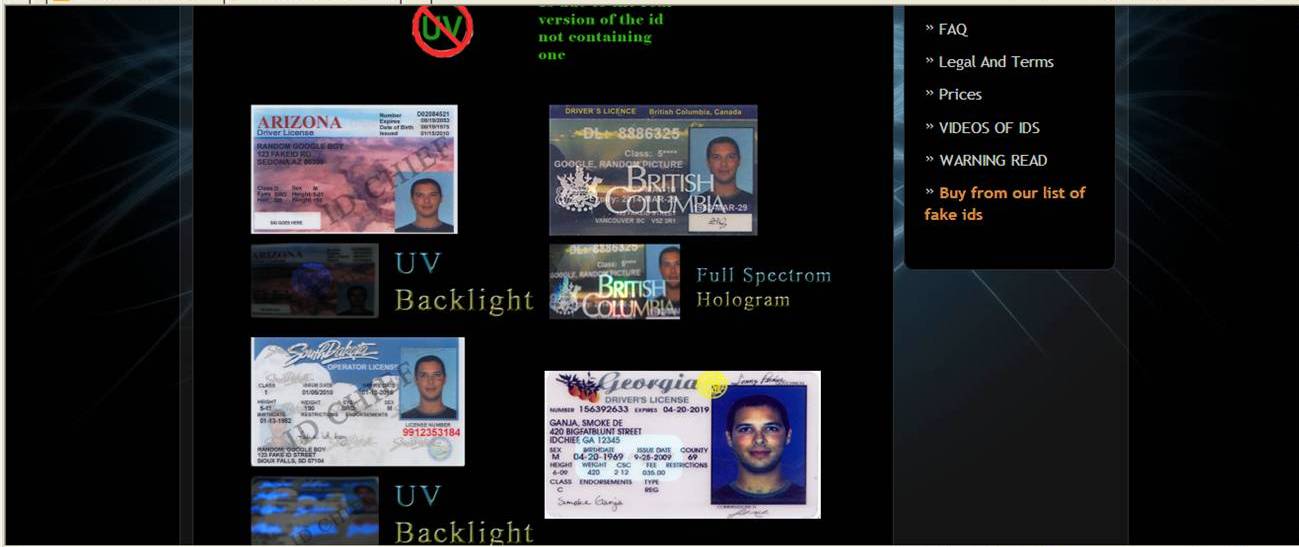“Extremely troubling,” is how one Arizona public safety officer described the small items in front of him.“Better than we’ve ever seen” was the reaction of Assistant U.S. Attorney for New Hampshire Al Rubega. And Charles Shumer, Senator from the state of New York minced no words when announcing a need to to “strangle their source of funding” of its purveyors, “and put them out of business.” The object of their alarm? An innocuous-looking laminated card, with an photo, name address and basic demographics of its owner.
By all appearances, a genuine driver’s license. But nevertheless a fake.
An emerging concern for legislators, law enforcement and even ordinary shopkeepers is the level of sophistication built into these IDs, as well as their source -- China. First cropping up on high high school and college campuses, the fake IDs could be ordered through an anonymous email address of a “Chinese guy”: buyers supply the name, address, birth-date and other basic information which appears on their driver's licenses, wire several hundred dollars to a bank account, and in several weeks’ time receive their card from China, hidden in between the packaging of some small item.
Set next to a genuine driver’s license from that state, the two cards look virtually indistinguishable. But these fakes go one  step further and imitate many of the hidden security features featured on the cards. Put them under UV light, as do the TSA security screeners, and the proper logo appears. Tilt the ID back and forth and just as in the genuine one, under the text will appear a hologram. Swipe the magnetic stripe on the reverse side into a handheld device, as would the bouncers at many bars, and all your information would be displayed just as on the card.
step further and imitate many of the hidden security features featured on the cards. Put them under UV light, as do the TSA security screeners, and the proper logo appears. Tilt the ID back and forth and just as in the genuine one, under the text will appear a hologram. Swipe the magnetic stripe on the reverse side into a handheld device, as would the bouncers at many bars, and all your information would be displayed just as on the card.
In fact the only way to trace the card’s origin is to scan the bar code on the back - the resulting readout will have “PARTiTek” appended to the end. The name corresponds to a bar code-encoding firm based in Nanjing, China.
Word of these super-IDs got around to several to several local TV stations, who decided to test them out on several local bars. The results were disconcerting: most of the doormen checking IDs were completely fooled by the fakes. And these are people trained to detect them.
For now, the “Chinese guy” appears more popular among teenagers looking to buy alcohol or enter a club than with terrorists looking to wreak havoc. But the implications of a fake ID sophisticated enough to pass even cursory TSA inspections should give us all pause.
To their credit, some businesses are already taking steps to detect these Chinese counterfeits - investing in better ID readers, which automatically check for all document security features, for instance. State and federal agencies are also fighting back by issuing more and harder to duplicate security features. This makes the need for reliable ID readers all the stronger, as the sheer amount and diversity of the new features will make them nigh impossible to verify with any confidence with the naked eye. Unfortunately, counterfeiters have gotten too good at creating the authentic look of the documents, and are now moving on to duplicating some of the under-the-surface parts. Businesses must develop a way to reliably verify the authenticity of these documents -- or a few teenagers sneaking in will be the least of their worries.

Fraud Fighter will be hosting a free webinar on the threat of therse sophisticated Chinese-made IDs, and reliable ways to detect them. It will take place on Thursday, December 8, 2011 from 11:00 AM - 12:00 PM PST. You can use the link above to register. We strongly advise you not delay your RSVP, as space is limited.


